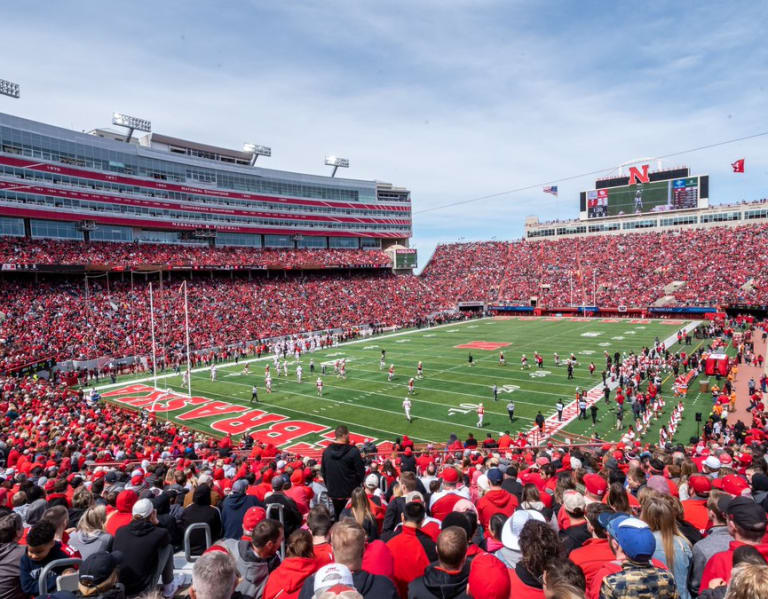
The stories are legendary of multiple generations of families flocking to Memorial Stadium and sitting in the same section, and in the same seats dating back to or before the beginning of the Bob Devaney era in 1962.
The kicker: It’s likely they’ve been covered by a “grandfathering” ticket policy that has allowed them to maintain their location without having to pay seat donations that the fan sitting next to them has had to shell out for the same piece of real estate.
That pricing policy could be changing – perhaps in time for the 2022 football season – following a broad review by the athletic department of how to enhance game-day experience both inside and outside of Memorial Stadium. Several questions in a recent fan survey conducted by the department as part of its review dealt with making seat pricing more equitable.
In this age of big money big-time college sports programs, Nebraska’s grandfathering policy seems – at least to some – to be an anachronism. Indeed, Nebraska may be the only Big Ten school that still allows much grandfathering, based on a HuskerOnline survey of the 14 members. (Iowa might be the only other school.)
Put another way, eliminating the grandfathered pricing protocol would put Nebraska in lock-step with most other schools not only in the Big Ten but the other major conferences.
How many seats at Memorial Stadium are covered under the grandfathering policy, and what is the metric to determine qualification? How long has this policy been in place? Why hasn’t it changed given the monetary needs of the athletic department? How will the affected ticket holders react?
Nebraska is withholding comment until it releases the results of its fan survey most likely in March, said athletic department spokesman Keith Mann.
If Nebraska is considering a new ticket pricing policy, it might look at what Ohio State has done. The Buckeyes eliminated grandfathered seat deals for families last year as part of a broader seat pricing plan, which is scheduled to begin for the fall 2022 football season.
Bottom line, said athletic department spokesman Jerry Emig “ we wanted everyone sitting in a section to all pay the same price for their seats.”
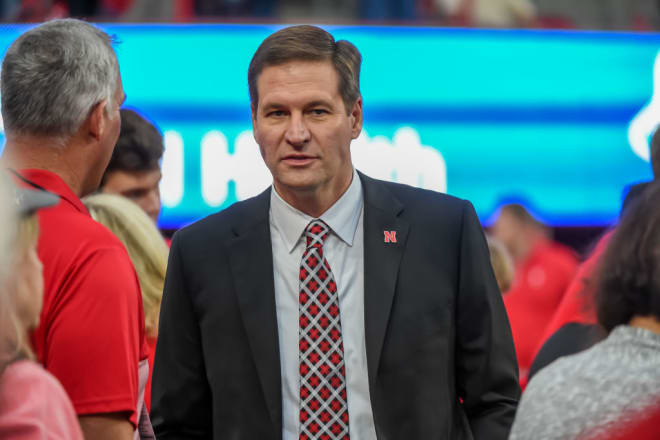
Finding an equitable solution
Athletic director Trev Alberts said in January that “implementing a seat equity plan could lower the average investment level for all, but may displace some of these loyal supporters.”
That’s the rub. Finding the ideal solution to raising money and continuing to fill Memorial Stadium comes with both financial and emotional impacts.
Jim Rose, a longtime Nebraska athletics observer and former Cornhusker play-by-play announcer, said Nebraska “has always been uniquely sensitive to the loyalty of its fans.”
When Rose worked in the athletic department’s development office and dealt regularly with season-ticket holders, he said the department’s view “was to protect legacy season ticket holders as much as possible while balancing the issue of fairness and financial need.”
As Rose sees it, Alberts is positioning Nebraska athletics – and football in particular – for the future by reimagining the game day experience. “He is willing to invest in stadium infrastructure that will provide a more comfortable, enjoyable experience. But that will come at a higher price for those who choose to buy it.”
“Quite frankly,” said Rose, “it is the trend in spectator sports…and it’s working everywhere else in the country.”
Rose believes Memorial Stadium will still accommodate the fan who chooses the more traditional Saturday game-day experience. “It just may not come from the seats they now occupy,” he added.
How will fans react?
“If you’re one of those fans who have enjoyed your grandfather’s pricing, you’re not too thrilled that it might come to an end,” Rose said. “But as a group, Nebraska fans have always been very supportive of the program through ticket sales, merchandise sales, and contributions. And I suspect most would hope that everybody is treated fairly.”
Changes at the Horseshoe
For many years, it was possible for people sitting next to each other at Buckeye Stadium to have paid significantly different prices for their season tickets. Does this sound familiar?
Starting this fall, Ohio State will have six pricing zones, with ticket holders in five of those zones being required to contribute to the Buckeye Club in order to buy season tickets. Students and premium-seat customers who are already paying more for suites and club seats are exempt under the new policy.
“If you were to build the (Horseshoe) today straight out with no history, no embedded constituencies, no grandfathered-issues, nothing more and were to (arrange the seating), this is how you would see it,” Ohio State athletic director Gene Smith told the Cleveland Plain-Dealer recently.
“Maybe it wouldn’t be six price zones,” he said. “It could be scaled with less or more, but you would scale it. You just have to figure out based on the day’s fan behavior what would fit, but you would definitely scale it.”
The most expensive per seat contributions will be $1,500 per seat, not counting the cost of the game ticket. From there, according to the school, the prices scale down, and over half of the seats in the stadium will cost $250 or less to reserve. Parking will also be split into three tiers depending on location. Each is linked to the mandatory contribution level, although the per-seat contribution applies to that amount.
Ohio State projects that under its new system, nearly a third of the current season-ticket holders will pay less for their seats.
Again, Smith said when the plan was announced, the “thing that I’ve embraced the most is that we’re really scaling the house. We’re really looking at the diversity of our fanbase and providing people an option to sit in a price zone based upon their financial capacity. We’ve done it in basketball where we have different price zones, we went to variable ticketing prices a while ago for football, so we’ve finally got to the point where we’re catching up with other schools.”
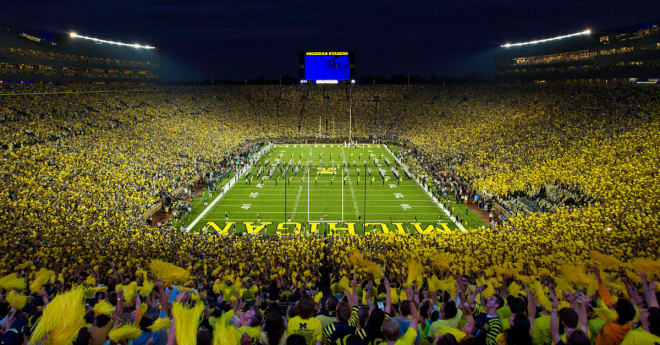
Around the league
How do other schools in the Big Ten handle grandfathering issues? Here are their responses:
Iowa: About 1,000 seats are grandfathered at Kinnick Stadium, and there are no plans to eliminate that pricing policy, said Iowa spokesman Jess Rickertsen.
To be grandfathered from seat donations, the ticket holder must meet either be an Iowa faculty member at least 50 percent of the time currently, or a season ticket holder prior to a 2005 Kinnick Stadium re-seating.
“If they move seat location, then they pay half the public per seat donation for the area moved to,” Rickertsen said. “If they are no longer faculty staff they would have to pay the public rate of the season ticket and the full per seat donation at the public rate.”
Minnesota: The ticket office “has had a handful of price changes and remapping in the last few years, and we did not grandfather anyone in,” spokesman Paul Rovnak said. “The same is true for the changes in donations at Huntington Bank Stadium a few years ago.”
Michigan: “All of our ticket prices move in unison for all customers,” said spokesman Kurt Svoboda.
Michigan State: The Spartans introduced seat premiums nearly 20 years ago,” said spokesman Matthew Larson. “At that time, we grandfathered in individuals who had the seats for 50-plus years at the time the premiums were implemented (max of two seats). There are currently fewer than 180 seats which have been grandfathered.”
Northwestern: There’s a minimal donation associated with the one premium seating area at Ryan Field,” said spokesman Paul Kennedy. “But in total, we only have a donation requirement for about 1 percent of the seats in the venue,” which lists capacity at 47,130.
Penn State: A spokesman said only that the school “is not in a similar situation” to Nebraska regarding seat equity pricing.
Rutgers: With one exception, every season-ticket seat at Rutgers’ football stadium is subject to seat fees, said Joe Rafanelli, an assistant athletic director. (Students are also exempt from the fees, of course.)
The caveat: Rutgers waived the seat donations for season ticket holders who had created scholarship funds in their name before federal tax laws eliminated the deduction in 2018. Rafanelli said this affects 40-to-50 accounts, or about “150 seats on the high end.”
Wisconsin: “The short answer is we do not have a grandfather policy on any of our seats” in Camp Randall Stadium, said Chad Kimmel, assistant athletic director-development.
Spokesmen for Illinois, Maryland, Purdue, and Indiana did not respond to requests for comment.
Steve Rosen covers the business of sports for Husker Online. Reach him for questions, comments, and story ideas at sbrosen1030@gmail.com.

Must See
-
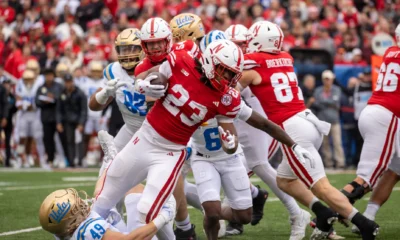

Football
/ 2 months agoHuskers Fight Hard but Fall Short Against UCLA
LINCOLN – The Nebraska Cornhuskers gave it their all on Saturday, with standout efforts...
-
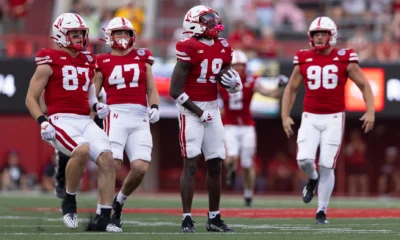

Football
/ 2 months agoGAMEDAY: Nebraska Set to Face Undefeated Indiana in Key Big Ten Showdown
Bloomington, IN – It’s Game Day, Husker Nation! Nebraska (5-1, 2-1 Big Ten) returns...
-


Football
/ 3 months agoBlackshirts Shine as Nebraska Tops Rutgers 14-7 on Homecoming
Lincoln, NE – Nebraska’s Blackshirt defense played a starring role in the Huskers’ 14-7...
By Chris
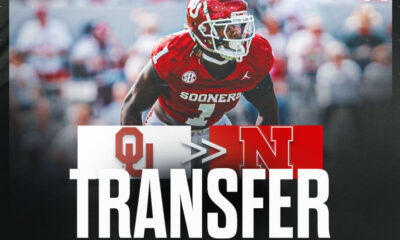

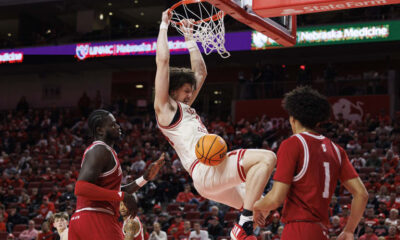

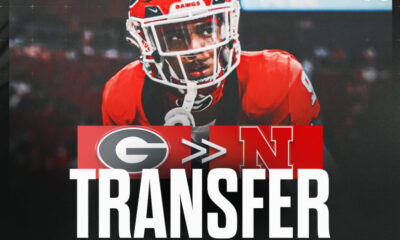

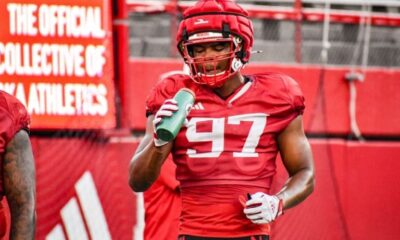

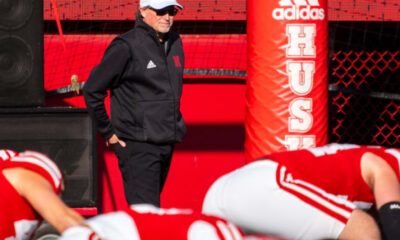

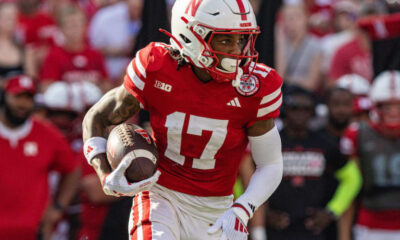

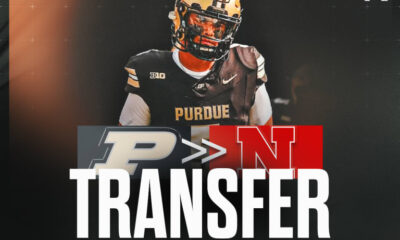








You must be logged in to post a comment Login